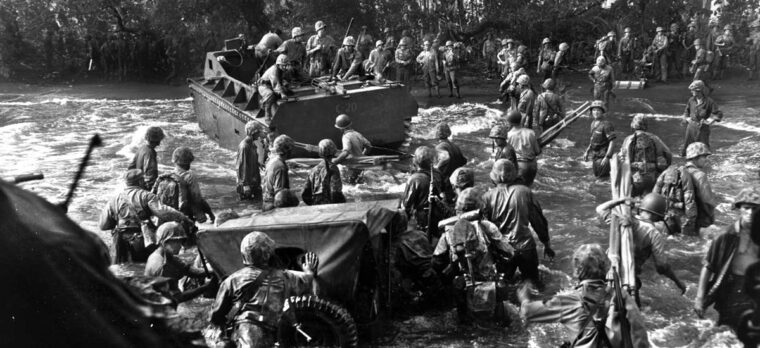
Guadalcanal
The Fight for Bougainville
By Michael E. HaskewThe bloody fight for Guadalcanal, where the string of Japanese conquests in the Pacific had finally run its course, was a turning point of World War II. Read more
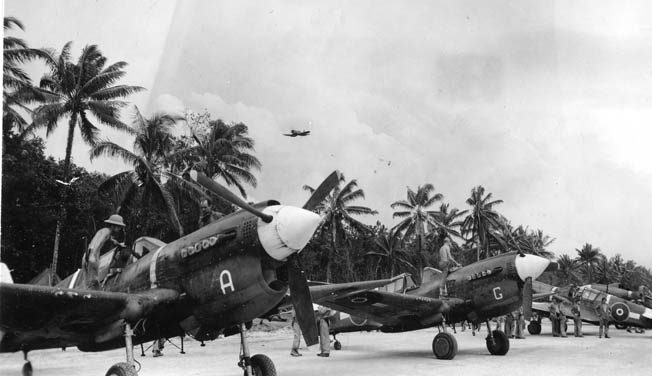
Guadalcanal, an island in the Solomons archipelago in the South Pacific, was the scene of the first U.S. offensive land action against Japan in World War II. American Marines landed on Guadalcanal in August 1942 and were later supported by U.S. Army troops. The Japanese defended Guadalcanal tenaciously, and the Americans did not declare the island secure until February 1943, and the victory was a turning point in the Pacific War. Numerous naval battles occurred off the shores of Guadalcanal as well.

Guadalcanal
The bloody fight for Guadalcanal, where the string of Japanese conquests in the Pacific had finally run its course, was a turning point of World War II. Read more
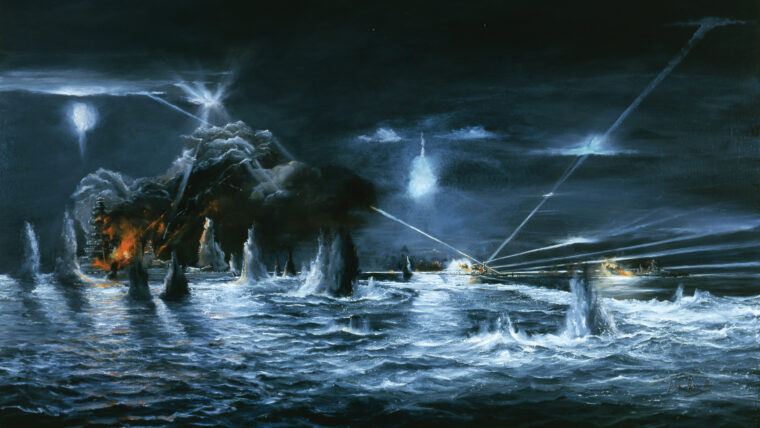
Guadalcanal
Rear Admiral Willis Augustus Lee has been called, among other things, “one of the best brains in the Navy.” Read more
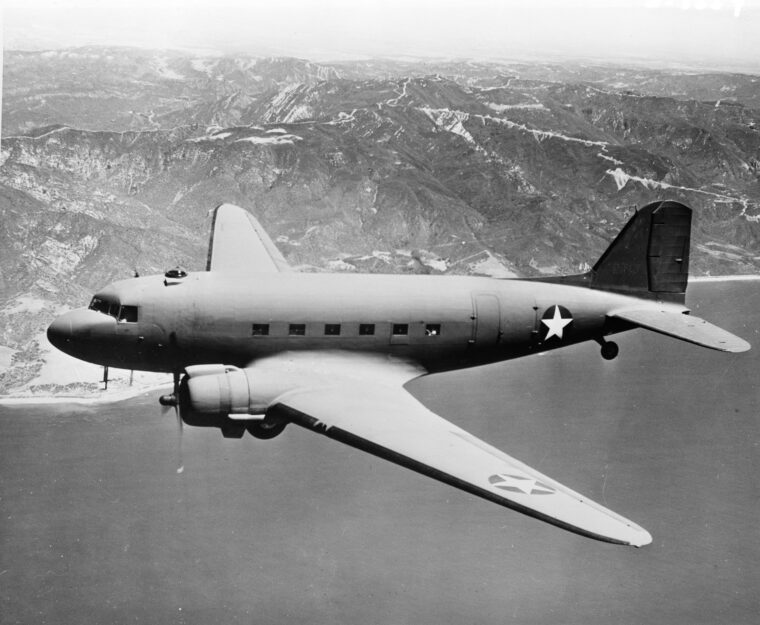
Guadalcanal
“Awe c’mon, Mom,” Cecil Petty told his emotional mother before leaving Homer, Illinois, in February 1941. “Who knows, I might be a hero.” Read more
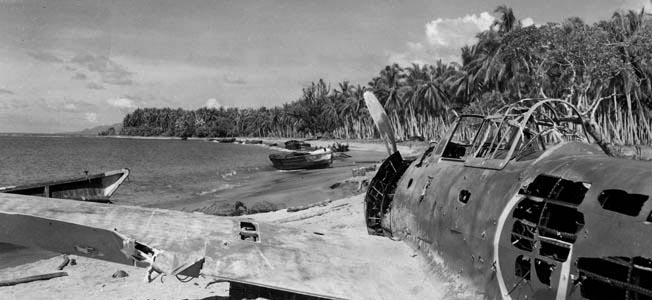
Guadalcanal
On August 7, 1942, American Marines landed unopposed on the island of Guadalcanal in the Solomons chain. The island was the key to future offensive operations in the South Pacific for either side, and the Marines were determined to defeat the Japanese in their first significant ground assault of the Pacific War. Read more
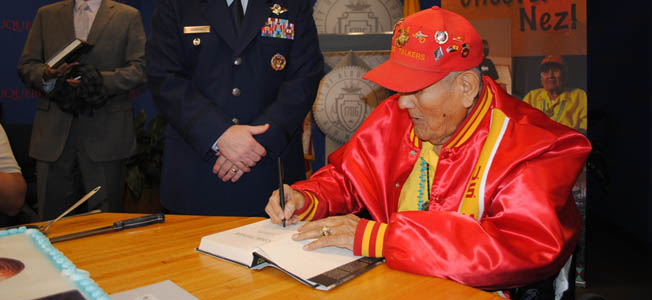
Guadalcanal
Chester Nez was born on January 23, 1921, in Chi Chil Tah, New Mexico to the Navajo “Black Sheep Clan.” This was a difficult time for the Navajo Nation, and tensions were tough between the U.S. Read more
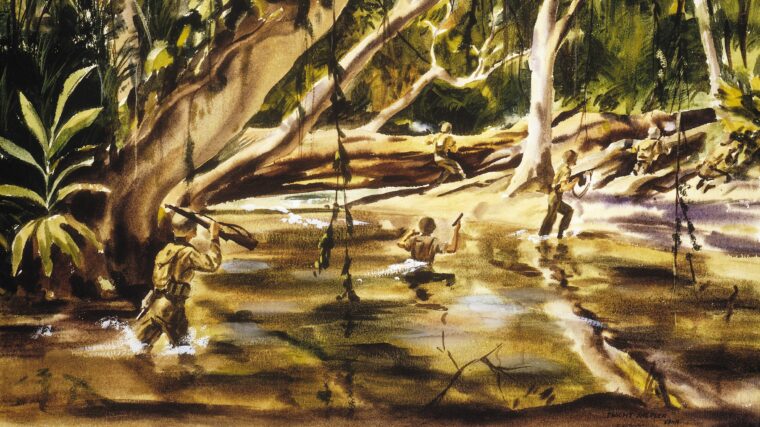
Guadalcanal
On August 6, 1942, the men of Maj. Gen. Alexander Vandegrift’s U.S. 1st Marine Division watched from the railings as their troopship, the USS George F. Read more
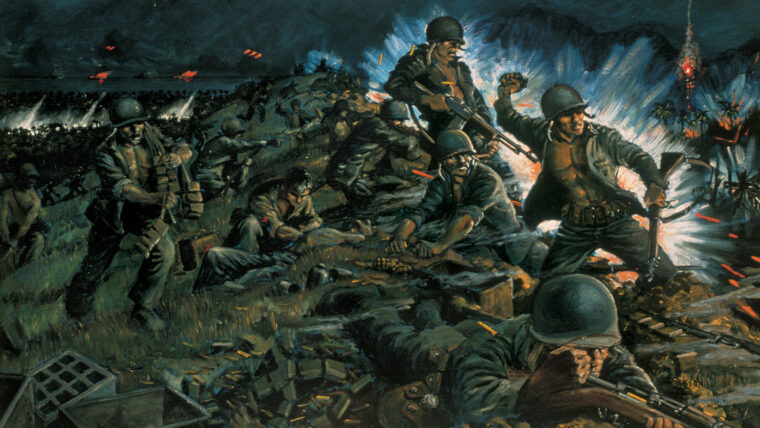
Guadalcanal
The column of sweaty, exhausted Japanese soldiers trudged single file through the thick, dark jungle. For days they had been pushing inland from the western end of Guadalcanal. Read more
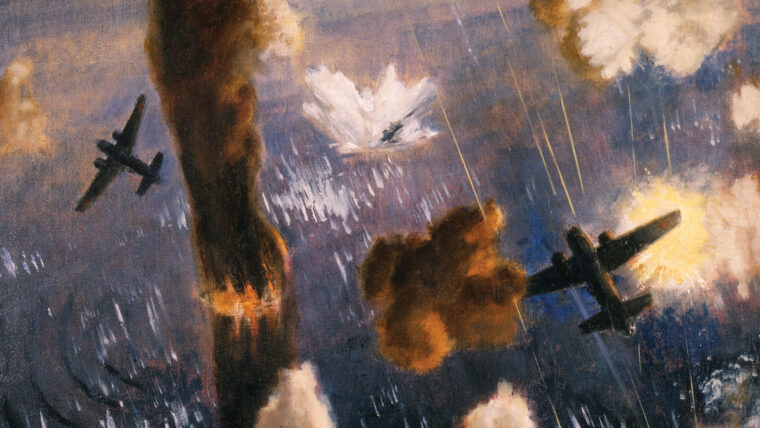
Guadalcanal
Amid rain, lightning, and dark, the British admiral and American general picked their way through choppy seas to the transport USS McCawley, off the coast of Guadalcanal. Read more
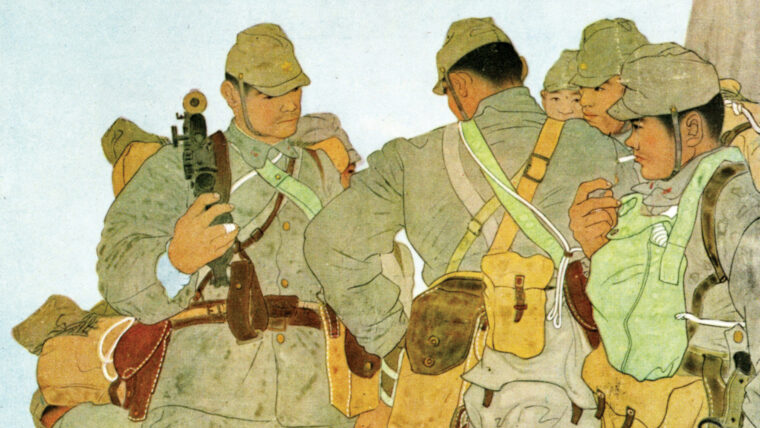
Guadalcanal
On December 1, 1942, Lance Corporal Kiyoshi Koto wrote his last letter home. By that time, his unit’s command structure was decimated and the battle strength of his army and its supporting navy was ravaged. Read more
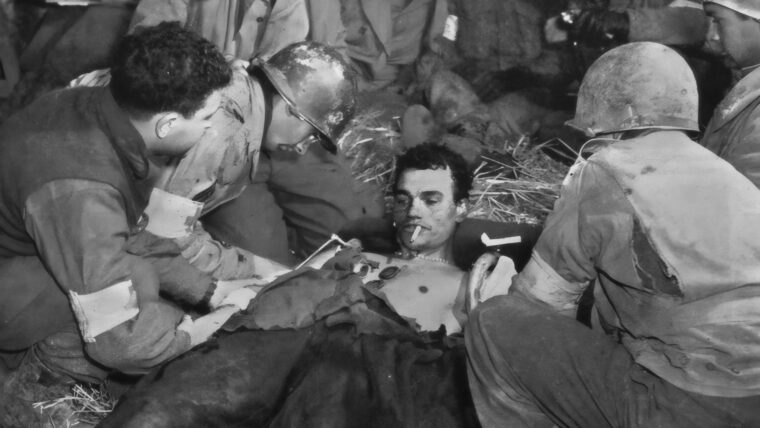
Guadalcanal
In an age before television and instant communications, Americans wanted to see what was going on in the world’s “deadliest conflict in human history,” and LIFE magazine was making a name for itself as THE war magazine during World War II. Read more
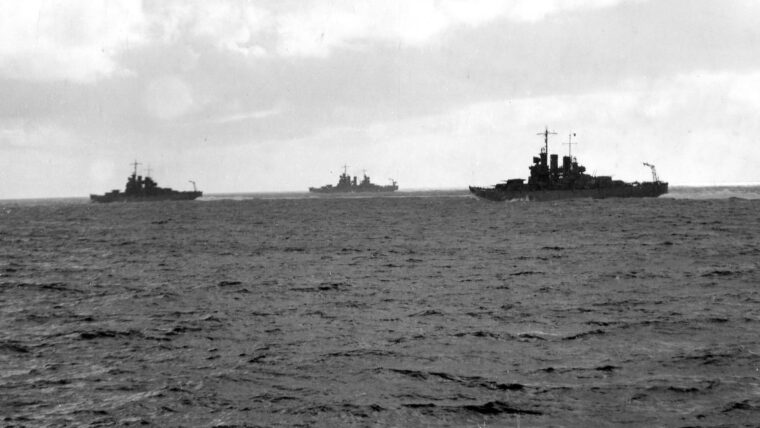
Guadalcanal
The island of Guadalcanal loomed in the distance as the warships of Task Force 36.1 approached the waters of Iron Bottom Sound on July 5, 1943. Read more

Guadalcanal
In April 1942, a group of young Marines, having recently graduated from Officers Candidate School, arrived at New River, North Carolina, a sprawling tent city that stretched over a vast area and would eventually become known as Camp Lejeune. Read more
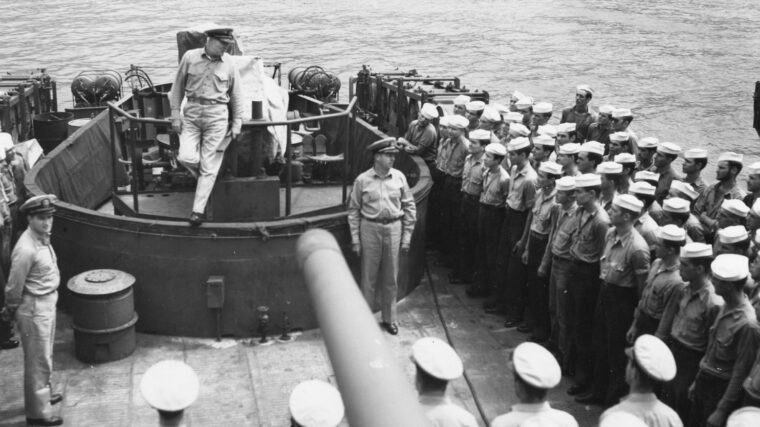
Guadalcanal
The first days of January 1943 found American forces winning the prolonged struggle for control of Guadalcanal in the South Pacific. Read more
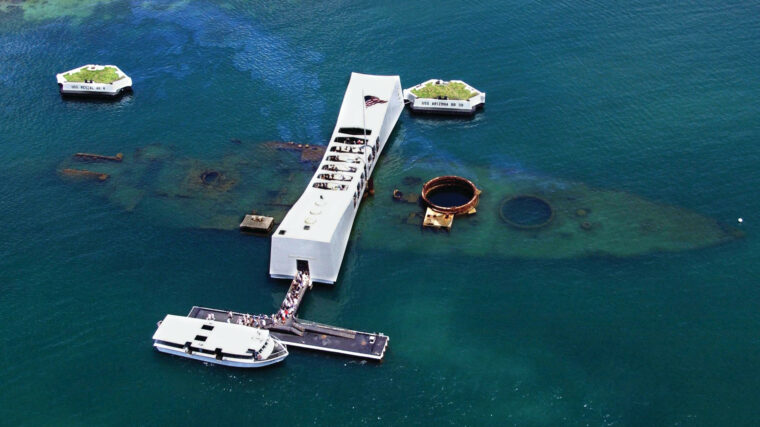
Guadalcanal
There are few places on earth that have as many World War II museums, memorials, and monuments located in such a small area as the island of Oahu. Read more
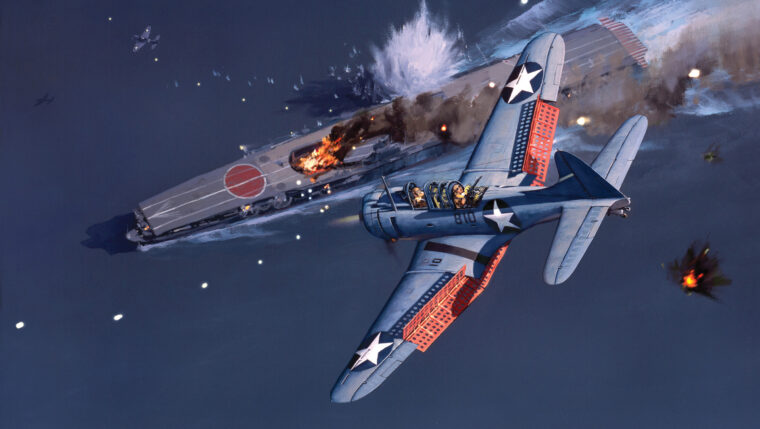
Guadalcanal
On August 7, 1942, Petty Officer 1st Class Saburo Sakai was piloting his Mitsubishi A6M2 “Zero” fighter in the skies over Sealark Channel in the Solomon Islands. Read more
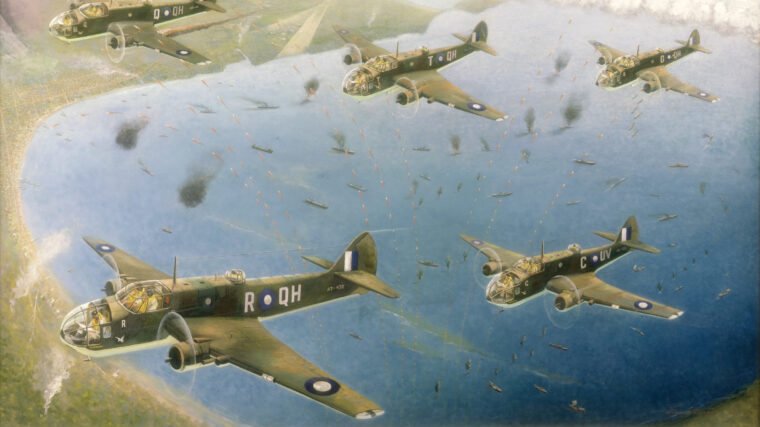
Guadalcanal
During early World War II operations in the Pacific, Geoff Fisken would become one of the most outstanding pilots of the RNZAF—the Royal New Zealand Air Force. Read more
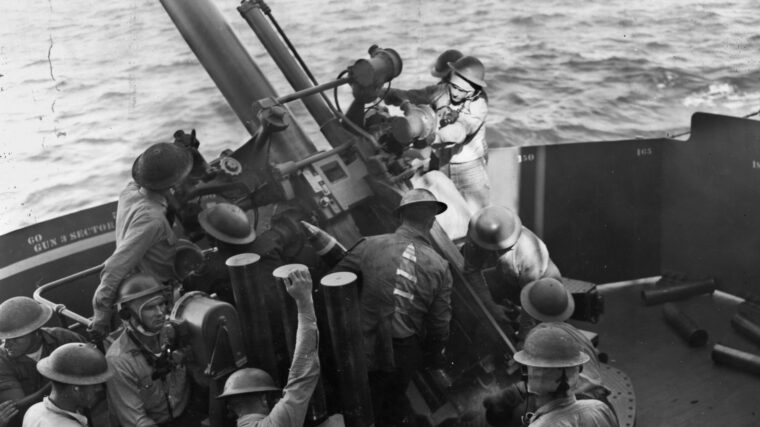
Guadalcanal
The fading daylight of August 6, 1942, found the American heavy cruisers Astoria and Chicago as part of Task Force 61, under the command of Vice Admiral Jack Fletcher, steaming toward the South Pacific island of Guadalcanal. Read more
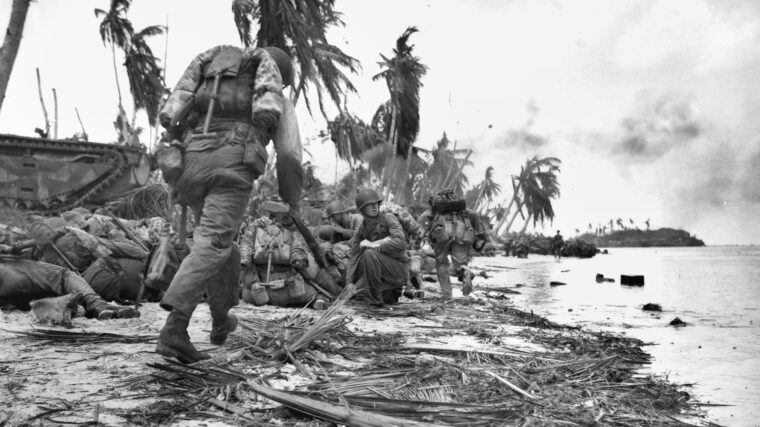
Guadalcanal
Above all, the island was defendable. From Ritidian Point in the north to the extreme southern coastline, Guam is 34 miles long, made in an irregular shape covering 228 square miles, the largest of all Pacific islands between Japan and New Guinea. Read more
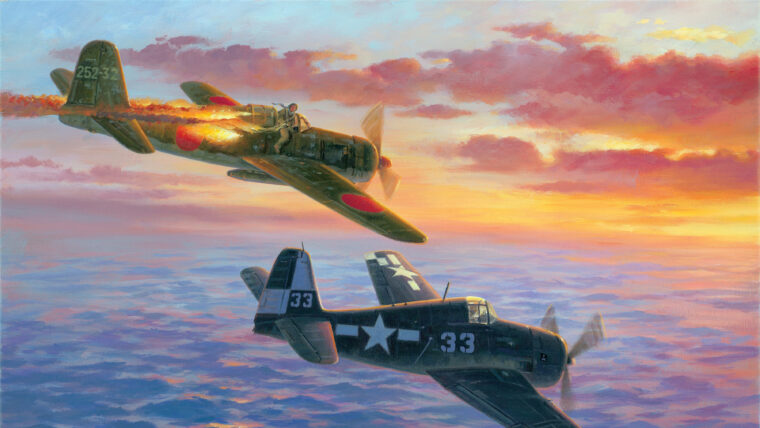
Guadalcanal
Lieutenant (j.g.) John “Ted” Crosby banked his Grumman F6F-5 Hellcat around, observing the life-and-death drama that was unfolding below him. Read more
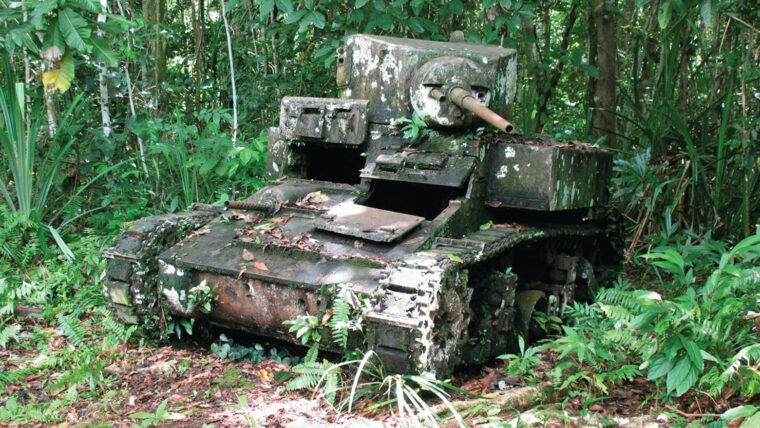
Guadalcanal
The downwind approach of my Boeing 737 into Honiara International Airport goes over Iron Bottom Sound, with Savo Island off in the distance. Read more